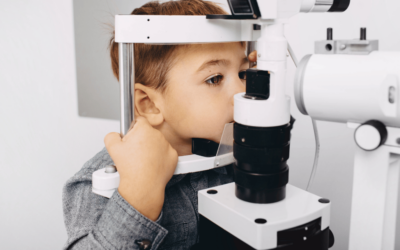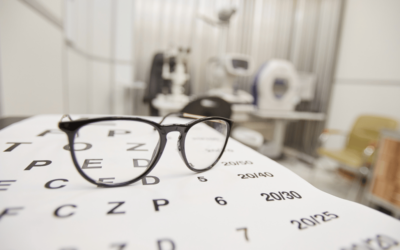Life gets busy, and it’s easy to put off scheduling eye exams. But taking care of your eyes is just as important as other aspects of your health. Many people wonder, “How often should I get an eye exam?” The answer can vary based on your age, lifestyle, and health. Let’s explore some general guidelines to help you understand when to schedule an appointment and why regular eye care is so important.
General guidelines for eye exam frequency
Children and Adolescents:
- Infants: We recommend that infants have their first eye exam between 6 and 12 months old. Catching any vision issues early can make a big difference in their overall development and success.
- Preschool (Ages 3-5): Another eye check before starting school is crucial to ensure your child’s vision is ready for learning.
- School-Age (Ages 6-18): Kids grow fast, and their vision can change quickly, too. An annual eye exam helps keep their vision on track with their growth and educational needs.
Adults:
- Ages 18-60: For some adults, a comprehensive eye exam every two years is enough. If you wear glasses or contacts, yearly check-ups are ideal to ensure your prescription stays accurate.
- Ages 61 and Older: As we age, the likelihood of developing eye conditions like cataracts and glaucoma increases, making yearly exams an important part of maintaining good eye health.
When you might need more frequent exams
Certain factors might mean you should see us more often:
- Existing eye conditions: If you have conditions like glaucoma or diabetic retinopathy, regular monitoring is crucial to managing your eye health.
- Chronic health conditions: Diabetes and high blood pressure can have a significant impact on your eyes, so more frequent exams might be necessary.
- Family history: If eye diseases run in your family, regular check-ups can catch any issues early.
- Work environment: If your job involves extended screen time or potential eye hazards, additional visits can help prevent digital eye strain and injury.
Why regular eye exams matter
Routine eye exams do more than just update your prescription; they’re key to catching eye diseases early when they’re most treatable. Many conditions, like glaucoma, often don’t show symptoms until significant damage has already occurred. Exams can also reveal other health issues, such as diabetes or high blood pressure, before they become more serious.
Creating a schedule that works for you
It’s important to work with your eye care professional to find an exam schedule that fits your needs. If you notice any vision changes, such as blurry vision, a sudden increase in eye floaters, or difficulty seeing at night, don’t wait—reach out to us right away.
Taking care of your eyes is a key part of staying healthy, and we’re here to make it as easy as possible. Regular eye exams are a simple but powerful way to keep your vision clear and catch potential problems early. If you have any questions or concerns about your eye health, don’t hesitate to schedule an eye exam in Tinley Park, Illinois.



